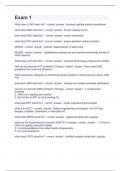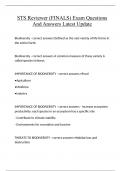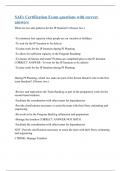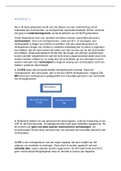Exam (elaborations)
PSYC 2700 Exam 3 Questions And Already Passed Answers.
- Course
- Institution
Psychoanalytic Theories - Answer -development determined by how well people solve conflicts -stage theories -but early development also have a major impact on development throughout life Freud's Theory: General - Answer -interested in origins and treatment of mental illness -patients' ...
[Show more]












